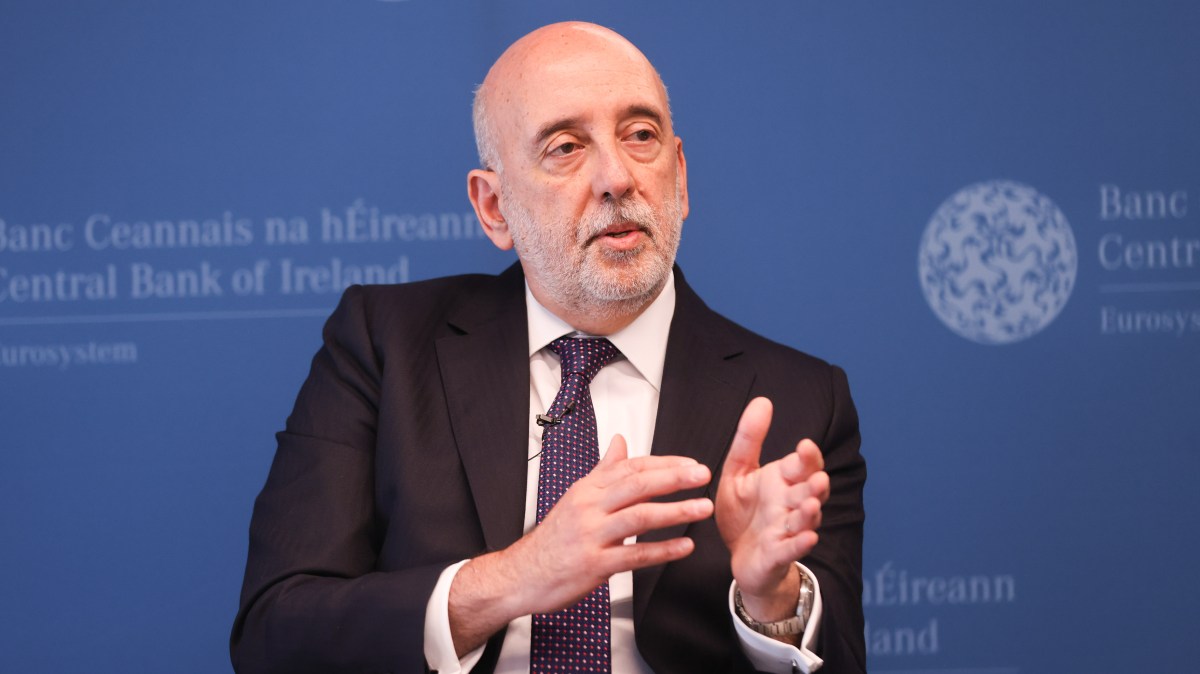Gabriel Makhlouf, governor of the Central Bank of Ireland, is increasingly “pessimistic” about economic trends as the nation faces a post-tariff decline in growth, with successive forecast downgrades on the horizon.
In an interview with The Sunday Times after the publication of the Central Bank’s financial stability report last week, Makhlouf said the Irish and global economies were facing “uncertainty coupled with unpredictability” because of the Trump administration’s trade policies.
“It is pessimistic in the sense that relative to where we were, say, a year ago, where in March we reduced our projections for growth from what we’d said in December, and in view of everything that has happened this year, that is a trend,” he said.
He said that although he did not believe the country was facing a recession, he believed it was heading into a period of slower growth. “It’s not surprising that you’re seeing businesses become more cautious on investment, you’re seeing households become more cautious on spending,” he said. “That’s a picture that I do expect to see continuing.”
The Central Bank’s economists are due to publish new economic projections on Thursday. It is likely they will trim forecasts for gross domestic product and domestic demand after a blowout first quarter that included a rise in exports before April’s tariff announcement, which pulled economic activity forward.
Last week’s stability report outlined a series of risks facing the economy in the next six months, including familiar warnings about Ireland’s reliance on international trade flows and the output of the pharmaceutical and tech sectors.
The report also flagged the dangers in precautionary household savings, slower consumption and challenging conditions for domestic firms, which employ the bulk of the workforce.
Makhlouf said he was preparing to write to Paschal Donohoe, the finance minister, warning him to build economic resilience by investing more in housing and infrastructure, which he sees as key elements to sustaining growth.
“The infrastructure challenges in Ireland are palpable … in particular housing,” he said. “We’ve been very specific in our advice that the government should really be investing in servicing land, making land ready for development. That means putting in transport links, water — all those things that developers need. That remains an area of priority.”
He added that the housing crisis had changed from a social policy problem to an economic issue, with businesses unable to recruit and workers having limited mobility because of the lack of supply and affordability. Makhlouf ruled out any relaxation in Ireland’s strict mortgage lending rules to help buyers keep up with rising prices in a supply-constrained market, however, arguing that the measures had worked well.
“I think they’re a permanent feature of the system,” he said. “It would be wrong for people to think it’s the macro-prudential rules that are the problem here. The problem is the supply of housing … There are a number of things we recommend that the government should do.”
He said his focus on developing better economic infrastructure in Ireland was about “putting yourself in a position to seize opportunity and to build buffers to manage shocks”. He said: “The propensity for economic shocks and financial shocks is greater now than five years ago, largely driven by geopolitics. If you plan for the medium to long term … you’re building resilience for that.”
